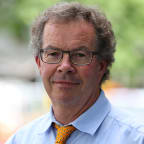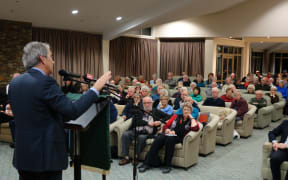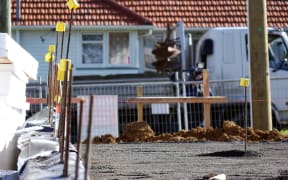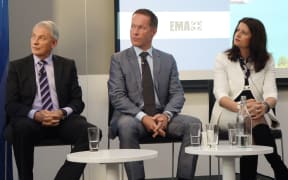Analysis - One thing is missing from the race for the Auckland mayoralty - a big idea.

Photo: 123rf
In the council's inaugural election in 2010, Len Brown conducted a winning campaign with a list of bold transport plans topped by the $2.5 billion City Rail Link.
The 2013 vote passed almost like a half-time election, with the council part-way through creating the development blueprint, the Unitary Plan and still working through bedding in a single rating system.
This year is different. Mr Brown has called it quits. The City Rail Link is under construction. The Unitary Plan will be in place.
In short, there's a clear platform for the next visionary leap forward.
With 11 weeks to go however, there's no sign of the next Big Idea.
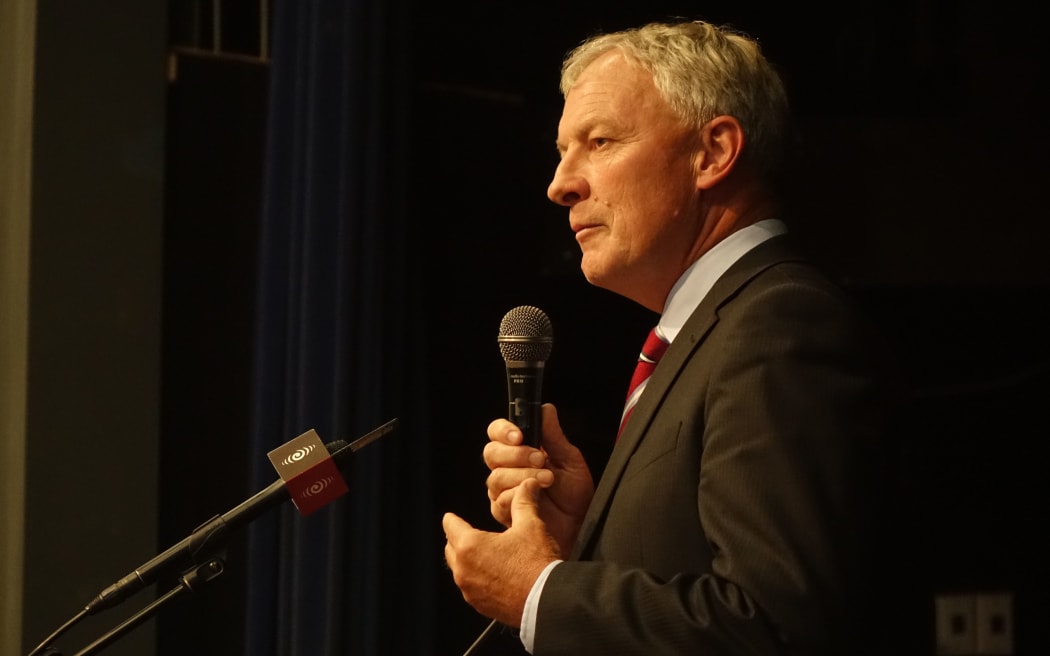
Phil Goff Photo: RNZ / Todd Niall
Phil Goff backs Light Rail for the isthmus suburbs. Vic Crone would cap rates at 2 percent. Mark Thomas wants to sell the Ports of Auckland operations (but not the land), and John Palino wants to build a satellite city.
The question is - are these big enough to count as a quantum leap likely to happen only due to strong mayoral qualities?
Light Rail is a project well advanced inside the council's Auckland Transport agency.
It's a probability, though its case will have to proven against other mass transit options such as busways.
This year's average rate rise was 2.5 percent, making Ms Crone's pledge just 0.5 percent under par.
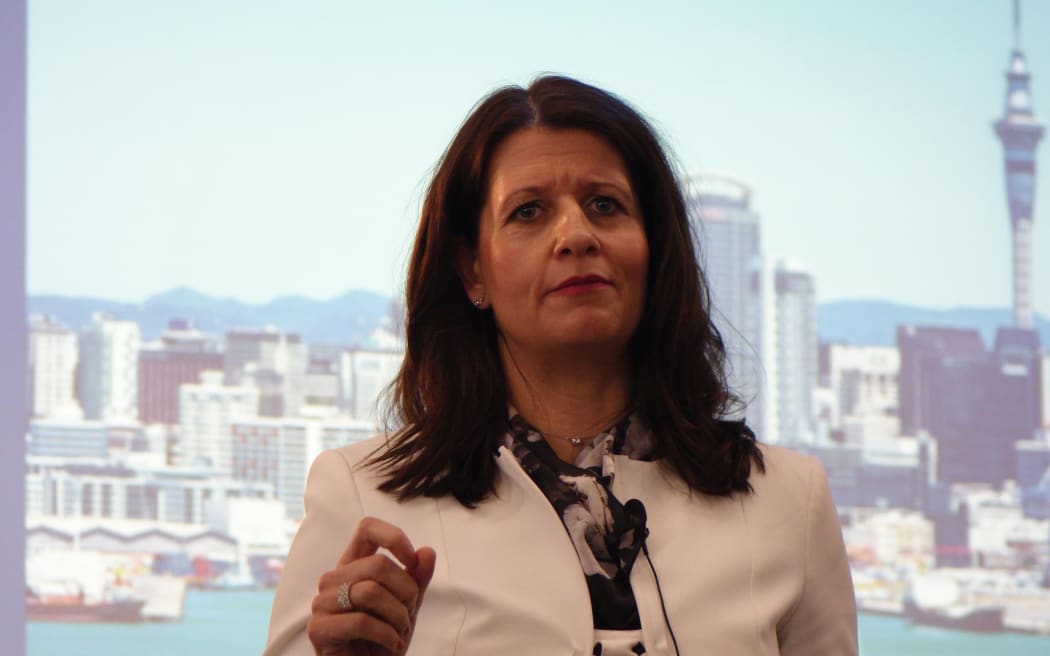
Vic Crone Photo: RNZ / Todd Niall
Selling the port operation is a long shot, given the amount of work done, and still to be weighed-up with the long-term future of the port's location.
Mr Palino's satellite city is likewise a longshot, throwing six years of planning and the likely outcome of the Unitary Plan to the wind - a plan he also intends to cast aside. Somehow.
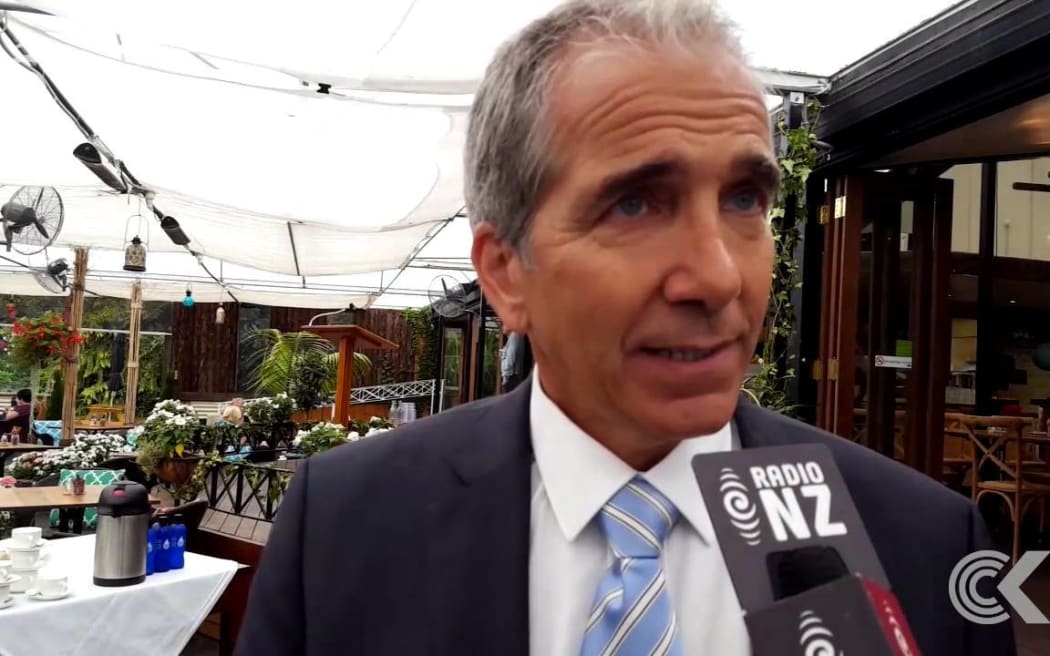
John Palino Photo: RNZ / YouTube
Nowhere is the absence of big ideas more obvious than in Auckland's most intractable problem.
The rising shortage and cost of housing - especially housing that is affordable or accessible to the most needy.
The four mayoral candidates were put on the spot at a public meeting in Manurewa, when Gordon Myer, a volunteer from the local Citizens Advice Bureau, spoke of the hundreds who were turning up seeking housing.
"What will the council do to make 'God's Own', really God's Own?" he asked the four candidates present.
Mr Goff recited two anecdotes and recapped the gravity of the problem.
Mr Palino blamed growth policies pushing the neediest furthest from where the jobs were, and promoted his satellite city idea.
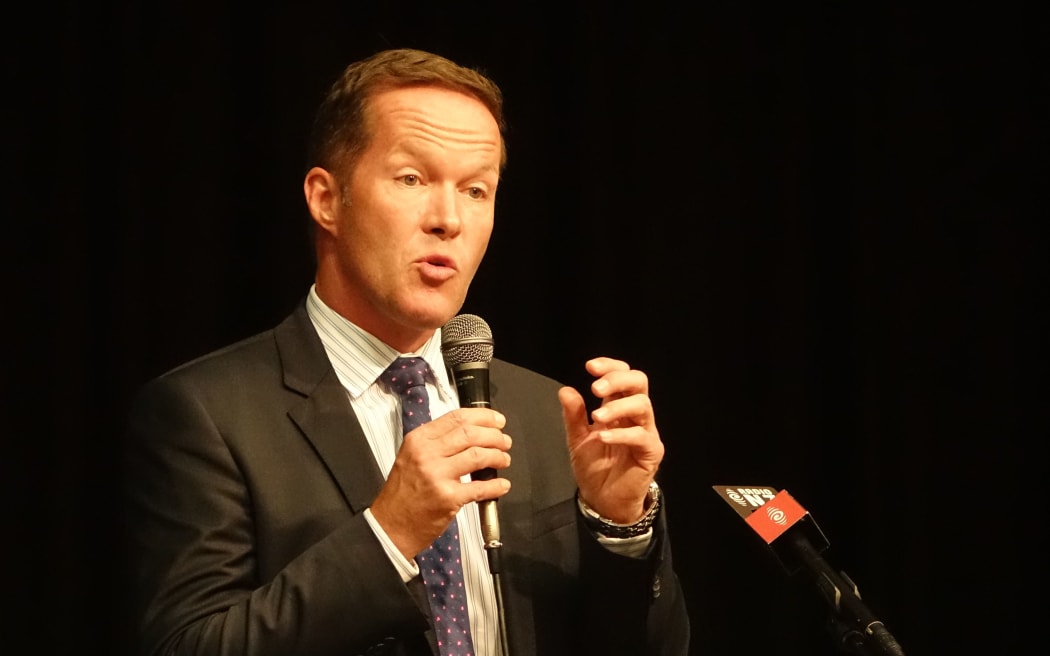
Mark Thomas Photo: RNZ / Todd Niall
Mr Thomas suggested the council could have used vacant buildings such as the former Civic Administration Building or an unused rugby clubrooms in Ellerslie.
Ms Crone's top priority was for the council to better forecast future growth. She pointed to her published 10-point policy which was largely concerned with matters already being dealt to such as speedier consenting, land release, and infrastructure roll-out.
Afterwards I asked Mr Myer if his question had been answered, and "not really," was his polite reply.
Much of the campaign talk from the four focused on the need to make the council more efficient, and to cut what they called wasteful spending.
At times the campaign sounds like a contest to see who can paint the council's financial performance the bleakest, and why candidate A or B is the best to save ratepayers from the perceived bloated bureaucracy.
That is important, but voters should not ignore details such as that the council itself has found $70 million of savings in 7 months in procurement alone, with the efficiency drive still in full swing.
Activist Penny Bright has her own transparency agenda, and the most recently declared candidate, 22-year old Chloe Swarbrick, is still preparing policy releases.
Maybe the answer to "Where's the Big Idea?" is that there's still 11 weeks to go.
Plenty of time for a mayoral candidate to unveil an inspiring, bold and deliverable policy that will capture the imagination of voters.
